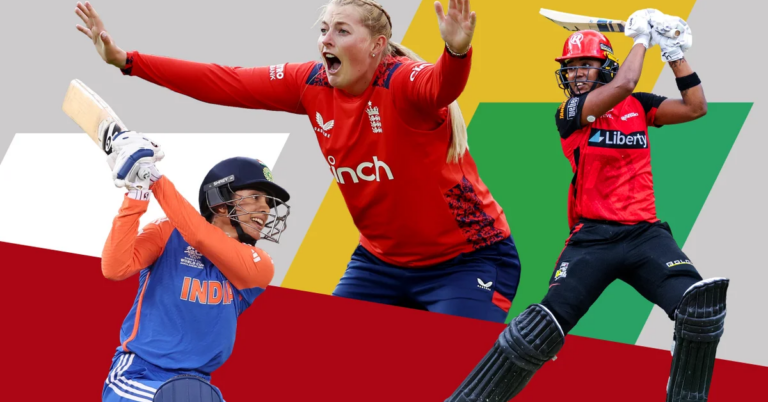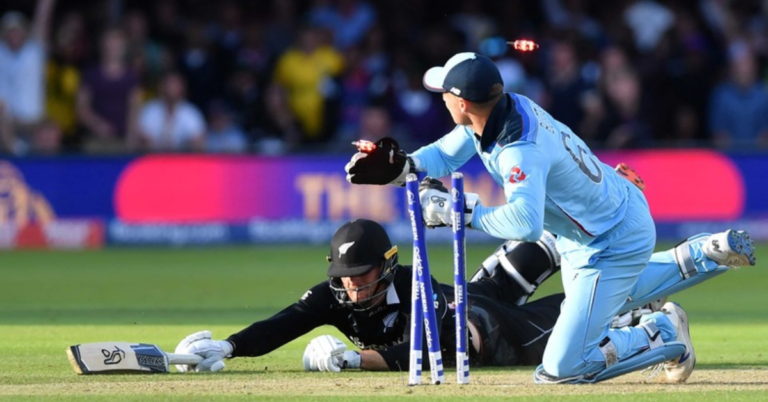The Role of Cricket in Promoting Cultural Harmony
99Exch, Gold: Cricket, with roots dating back to the 16th century in England, has evolved from a leisurely pastime to a professional sport with a global following. The game’s early beginnings were linked to rural communities who played it for recreation and entertainment, gradually gaining popularity across societal classes.
Through the centuries, cricket underwent significant transformations, with rules and formats evolving to suit the preferences of players and spectators alike. The sport’s expansion beyond England’s borders led to its introduction in various countries, each adapting the game to align with their unique sporting traditions and preferences.
Cricket as a Global Sport
Cricket, a sport enjoyed by millions around the world, has truly become a global phenomenon. With its origins in England, cricket has spread to various parts of the world, gaining popularity in countries such as India, Australia, South Africa, and the West Indies. The international appeal of cricket is evident in the fierce competition seen in tournaments like the ICC Cricket World Cup, where teams from different continents battle it out for glory.
The global reach of cricket has not only brought together players and fans from diverse backgrounds but has also created a sense of unity and camaraderie among nations. Through the mutual love for the sport, people from various cultures and societies come together to celebrate the skills and talents displayed on the cricket field. The spirit of sportsmanship and friendly rivalry that cricket fosters transcends borders and serves as a common language that connects people from all corners of the globe.
Cultural Significance of Cricket
Cricket holds a special place in many societies around the world, serving as more than just a sport but as a symbol of identity and unity. The game’s cultural significance can be seen in the passion and fervor with which it is played and followed in countries like India, Australia, England, Pakistan, and the West Indies, among others. Cricket matches often transcend mere competition, becoming events that bring communities together, foster camaraderie, and ignite national pride.
Moreover, cricket has played a vital role in shaping the cultural fabric of nations, influencing art, literature, music, and even politics. The sport’s heroes are celebrated not just for their sporting achievements but often elevated to the status of national icons, embodying the values and aspirations of their people. Cricket has the power to evoke strong emotions and nostalgia, forming a shared heritage that connects generations and unites diverse groups under a common passion for the game.
Cricket and National Identity
Cricket has long been intertwined with the national identity of countries where the sport holds significant cultural importance. In nations like India, Pakistan, England, Australia, and the West Indies, cricket is not just a game but a defining aspect of their national character. It serves as a source of pride, unity, and shared heritage among diverse populations, transcending barriers of class, religion, and ethnicity. The passion for cricket in these countries runs deep, fueling a sense of belonging and allegiance that is deeply ingrained in the collective consciousness.
The success of a national cricket team is often seen as a reflection of a country’s overall standing in the global arena, further strengthening the connection between cricket and national identity. Victories on the cricket field are celebrated with fervor, boosting national morale and fostering a sense of camaraderie among citizens. The colors of a nation’s flag are proudly worn on the cricketing jerseys, symbolizing the fusion of sport and patriotism in a powerful display of national pride.
Cricket Diplomacy
Cricket has long been recognized as a powerful tool for fostering diplomatic relations between nations. The game transcends borders and brings people from diverse cultures together on a common platform, creating opportunities for communication and understanding. In times of political tension or conflict, cricket matches have played a significant role in easing tensions and building bridges between countries, showcasing the potential of sports diplomacy.
Through the shared passion for cricket, nations have been able to engage in friendly competition, promoting goodwill and mutual respect. Matches between rival nations have provided a platform for leaders to come together, transcending political differences and fostering a sense of camaraderie. Cricket diplomacy has proven to be a valuable avenue for countries to engage in meaningful dialogue, emphasizing the importance of sports as a tool for promoting peace and cooperation on the international stage.
Cricket’s Influence on Society
Cricket has undeniably had a significant influence on society, transcending borders and bringing people from different backgrounds together on the field. The sport has the power to unite individuals in a shared passion, fostering a sense of camaraderie and community among players and spectators alike. Through the spirit of competition and teamwork inherent in cricket, societal bonds are strengthened, promoting a sense of belonging and solidarity.
Furthermore, cricket serves as a platform for social change and empowerment, offering opportunities for individuals to showcase their talents and abilities regardless of their socio-economic status. The sport has the potential to break down barriers and challenge existing stereotypes, paving the way for increased inclusivity and diversity within society. By promoting values such as sportsmanship, respect, and fair play, cricket plays a vital role in shaping a more cohesive and harmonious social fabric.
Cricket and Cross-Cultural Exchange
Cricket has long been recognized as a platform for cross-cultural exchange, where players from diverse backgrounds come together to compete and collaborate on the field. This exchange goes beyond just the game itself, as moments of camaraderie and understanding are fostered through shared experiences and interactions that transcend language barriers and cultural divides.
Through cricket, individuals have the opportunity to learn about different traditions, customs, and values, leading to a greater sense of empathy and respect for cultural diversity. The sport serves as a bridge that connects people from various parts of the world, creating a sense of unity and mutual appreciation that transcends differences. As teams travel to different countries to compete, they bring with them not only their skill in the game but also their unique perspectives and identities, enriching the cultural tapestry of cricket’s global community.
Cricket and Breaking Down Stereotypes
Cricket has a unique ability to break down stereotypes by bringing people together from diverse backgrounds, fostering a sense of unity and camaraderie among players and fans alike. On the cricket field, individuals are judged based on their performance and character rather than their ethnicity, nationality, or cultural background. This promotes inclusivity and mutual respect, transcending societal prejudices and fostering a shared appreciation for the sport.
Through the spirit of sportsmanship and competition that cricket embodies, stereotypes and prejudices are challenged and dismantled. Players from different countries and cultures come together to compete on a level playing field, showcasing their talents and skills without discrimination. This serves as a powerful example of how sport can bridge divides and promote understanding and respect among people from various walks of life.
Cricket as a Tool for Social Integration
Cricket has long been recognized as a powerful tool for social integration in communities around the world. The sport has a unique ability to bring people together regardless of their background, fostering a sense of unity and camaraderie among players and fans alike. Through shared experiences on the cricket field, individuals from diverse cultural, religious, and social backgrounds are able to come together, breaking down barriers and building bridges of understanding and respect.
By promoting teamwork, cooperation, and mutual respect, cricket provides a platform for individuals to connect on a deeper level beyond surface differences. Whether on the pitch or in the stands, the shared passion for the sport unites people in a common goal, creating a sense of belonging and community. As players work together towards a common objective, they learn to appreciate each other’s strengths and contributions, ultimately forging strong bonds that transcend societal divides.
Challenges and Opportunities for Cricket in Promoting Cultural Harmony
Cricket, with its rich history and global popularity, has the potential to bridge cultural divides and foster harmony among nations. However, one of the challenges it faces in promoting cultural unity is the prevalence of stereotypes and prejudices that can hinder inclusivity and cooperation within the cricketing community. Overcoming these biases requires a concerted effort to promote diversity and celebrate the unique cultural contributions of players and fans from all backgrounds.
On the other hand, cricket also presents a unique opportunity to showcase the shared values and common interests that transcend borders and bring people together. By using the platform of cricket to highlight the similarities rather than the differences between individuals and communities, the sport can serve as a powerful tool for promoting cultural harmony and fostering mutual understanding. Embracing this potential can lead to a more inclusive and unified cricketing environment that celebrates diversity and promotes peace and cooperation on and off the field.
What is the history of cricket?
Cricket has a long and rich history, dating back to the 16th century in England. It has since evolved into a popular sport played in many countries around the world.
How does cricket promote cultural harmony?
Cricket promotes cultural harmony by bringing people from different backgrounds together to share a common passion for the sport. It serves as a platform for cultural exchange and fosters understanding and respect among diverse communities.
How has cricket influenced society?
Cricket has had a significant impact on society by promoting values such as teamwork, sportsmanship, and discipline. It also serves as a source of entertainment and inspiration for many people.
Can cricket help break down stereotypes?
Yes, cricket can help break down stereotypes by bringing people together in a shared activity and showcasing the talents and abilities of individuals regardless of their background.
What are some challenges faced by cricket in promoting cultural harmony?
Some challenges include overcoming language barriers, addressing cultural differences, and ensuring inclusivity and diversity within the sport.
What opportunities does cricket have in promoting cultural harmony?
Cricket has the opportunity to serve as a powerful tool for promoting cultural harmony through initiatives such as cricket diplomacy, cross-cultural exchanges, and social integration programs.
How can cricket be used as a tool for social integration?
Cricket can be used as a tool for social integration by creating opportunities for people from different backgrounds to come together, interact, and bond over their shared love for the sport.







